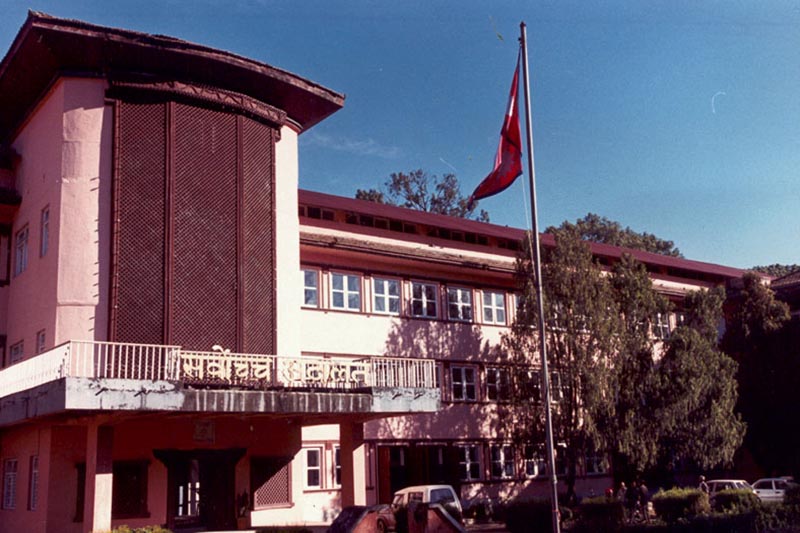‘Offsprings of citizens by birth entitled to citizenship by descent’
Kathmandu, April 11
Civil society members and lawyers have reacted with dismay over the recent stay order by the Supreme Court against the government’s circular that ordered district administration offices to grant citizenship by descent to children of citizens by birth.
A single bench of Justice Purushottam Bhandari had, on Monday, issued a stay order against the government’s decision in response to a petition filed by Senior Advocate Bal Krishna Neupane.
Chief Attorney of Province 2 Dipendra Jha said Article 11 (3) of the constitution that ensured citizenship rights for children of citizens by birth was an absolute right which could not be tied with any enabling law or bill under consideration in the Parliament.
Jha said the SC had issued writ of mandamus in the past telling the government to grant citizenship by descent to children of citizens by birth and district administration offices had been issuing citizenship to the applicants as per court order.
Addressing an interaction organised by Tarai Human Rights Defenders Alliance here today, Senior Advocate Surendra Kumar Mahto said as per the constitution, children of citizens by birth had the rights to obtain citizenship by descent irrespective of the status of any federal law in the Parliament. “This is a constitutional right and nothing can bar these people from obtaining citizenship by descent. I am surprised that the SC has issued stay order against the circular issued by the home ministry,” Mahto said.
Nepal’s former Ambassador to Denmark Vijay Kant Karna said the government was trying to dilute the changes brought about by the Madhes movement in addressing statelessness in Madhes and in ensuring inclusion and fair representation in the region.
“The government’s security policy treats Tarai-Madhes as a threat to the country and therefore, the government is trying to reintroduce policies that were introduced during Panchayat system to deal with the Madhes. Its policies on citizenship are an offshoot of the government’s regressive approach towards Madhes,” he said.
Civil society member Rita Sah said Madhesis had always suffered discrimination on matters of citizenship.
“Now there is a ploy to initiate a wrong discourse in the name of gender equality. Some people are saying that if foreign men married to Nepali women have to wait for some years to obtain Nepali citizenship on the basis of marriage, then the same provision should also apply to foreign women married to Nepali men. If this happens, it will affect almost every household in Madhes as almost every household has marital relations across the border,” she added.
Another civil society members, Anand Gupta, said Madhesis needed to prepare for a long fight with the government which was promoting a wrong concept of nationalism.
Rastriya Janata Party-Nepal lawmaker Amrita Agrahari said the concerned parliamentary committee was deliberately delaying the enactment of the Citizenship (amendment) Bill at the behest of the government, and Madhesi forces needed to fight against it. “Amendment to the constitution is almost impossible under this government which is not prepared even to implement the constitutional rights of the children of citizens by birth,” she added.
Lawyer Pundevi Maharjan who is associated with Forum for Law, Women and Development, said deserving people from all regions, and not only Madhes, had been deprived of right to citizenship. Therefore, civil society members should fight for the cause, treating it as a national issue. She said denying citizenship could threaten national, unity but some people with flawed notion of nationality were arguing just the opposite.
THRD Alliance officials said they had filed a third party intervention to argue before the SC against the stay order issued by the apex court that halted distribution of citizenship by descent to children of citizens by birth.
The SC will hear arguments from both sides on April 16.






